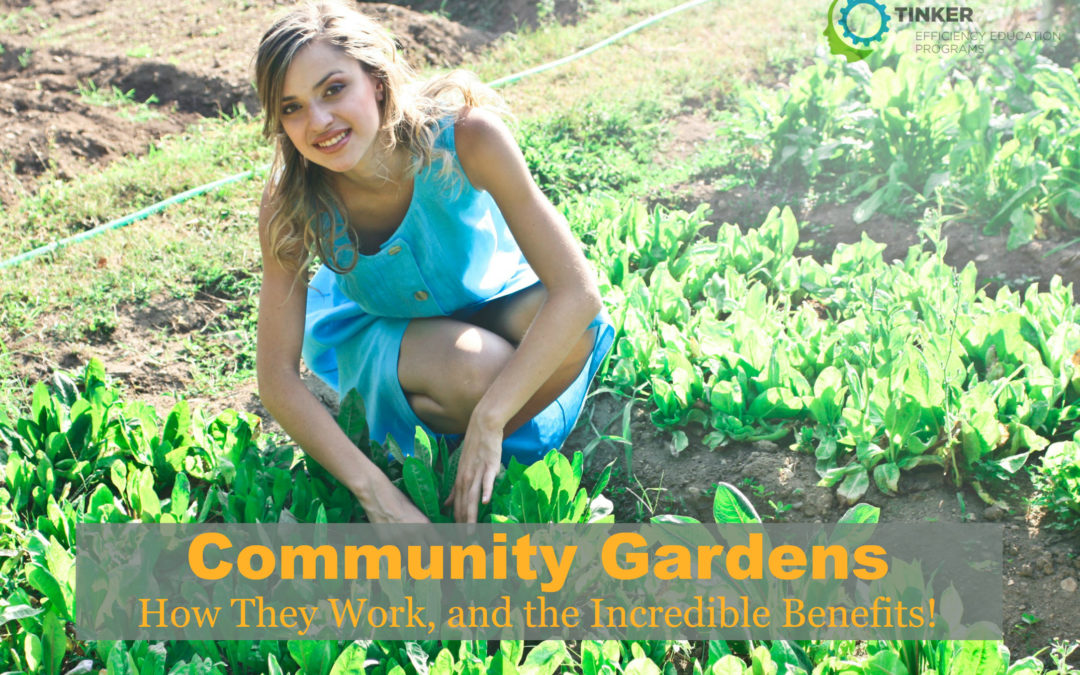Community gardens have become more popular throughout the country over the last several years, and for plenty of good reasons!
You might even have one in your own town, but you’ve never been quite sure how it works.
Well, community gardens are more than just large spaces for people to grow vegetables (don’t get us wrong, that’s a huge benefit!). There are so many benefits to these gardens when it comes to the community itself, and of course, when it comes to the environment.
How Does a Community Garden Work?

Community gardens essentially function the same way any small home garden would, but on a larger scale. Many communities are encouraging their citizens to take part in these larger garden because of the many benefits. In order to grow your own plants, you simply reserve an area of the garden and tend to it. Others do the same, and the result is a thriving, fully-functioning garden that brings people together.
Some community gardens work differently – they are run by volunteers and different organizations instead of individuals renting out sections. These volunteer-run gardens are maintained for a variety of reasons, including to provide food and other resources to the community. Many larger cities have started putting these gardens in urban areas because they offer so many benefits.
Who Benefits from a Community Garden?

Community gardens reduce the strain of environmental impact. They do this by lowering the cost of food transportation and water runoff. Because these gardens are so diverse, they also help local animal life, and other plant life, creating an ideal ecosystem that’s specific to your area.
As a result, both air and soil quality improve.
The most obvious benefit, of course, is all the delicious food that can be grown in a community garden! This helps to reduce waste in the neighborhood since most community gardens also take part in composting.
Even though the positive environmental impact is huge when it comes to these spectacular growing facilities, there are so many more reasons to consider either starting or taking part in a community garden. Some of the biggest benefits that have been noted from urban areas with community gardens include:
- A drop in the city’s crime rate
- An increase in economic activity
- Promoting healthy eating habits to locals
- An improvement in otherwise vacant lots/land
- Reduces stress and promotes mental stability
- Helps to educate area youth on the importance of the environment

Whether you’re part of one yourself, or you take advantage of your local area’s garden, you can take comfort in knowing how much you’re doing for yourself, for others, and for the planet. Gardens like these are always looking for volunteers, so don’t be afraid to see what you can find locally.
If there isn’t a community garden in your city, why not take the opportunity to start one? All it takes is the perfect location, and an approval from your local government to get started. Once the idea takes off, you might just be surprised how popular the garden quickly becomes.

